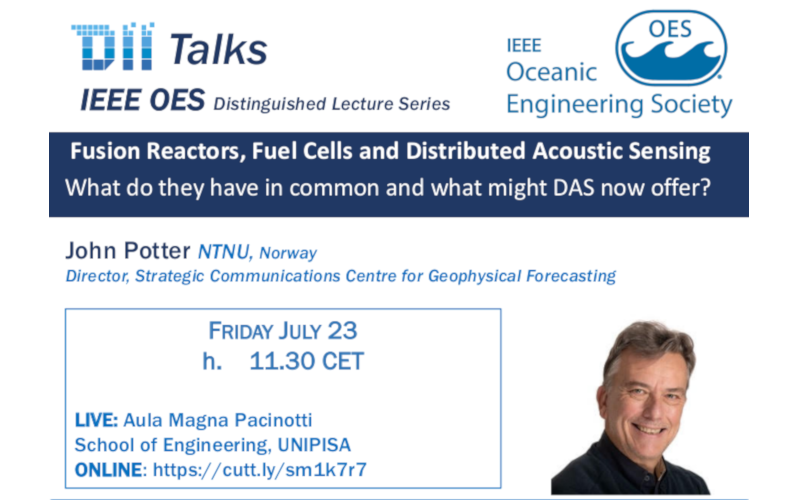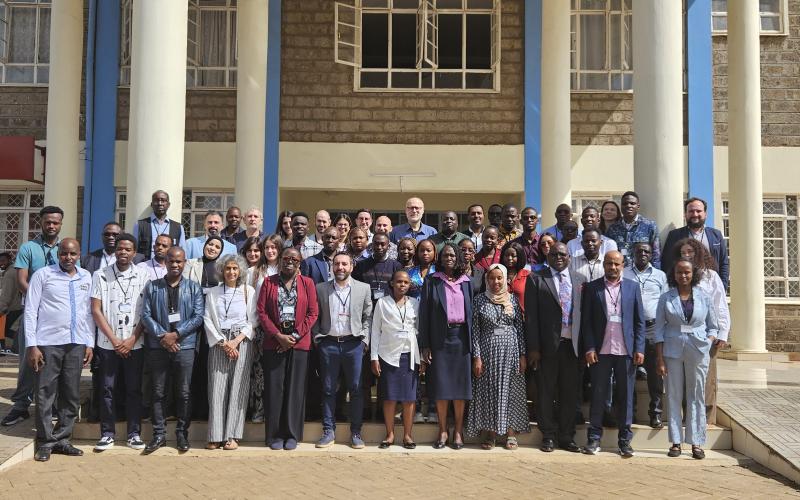In questi giorni il team di bioingegneri composto da Arti Ahluwalia, Carmelo De Maria e Chiara Belmonte si trova a Nairobi per tenere un corso intensivo nell'ambito del progetto Afra Moya, di cui il...
Leggi tuttoFusion reactors, Fuel Cells and Distributed Acoustic Sensing - What do they have in common and what might DAS now offer?

IEEE OES Distinguished Lecture Series
Organisers: IEEE OES Chapters, Italy and Norway
In partnership with
IEEE Student Branch University of Pisa
IEEE OES Joint Student Branch UNIFI-UNIPI
Link to the talk: https://teams.microsoft.com/l/meetup-join/19%3ameeting_NWFhNDRlZjItM2JmM...
Speaker: Dr John R Potter, Professor, NTNTU, Norway & Director, Strategic Communications Centre for Geophysical Forecasting
Abstract: Has Distributed Acoustic Sensing (DAS) finally reached a performance level to become a game-changer? Together with other wonderful and near-miraculous technologies such as fusion reactors and fuel cells, we have become accustomed over the years to hearing that these technologies are just about to break onto the scene. But perhaps we really do live in a special moment in time. While many would claim this is always true in some sense, it is undeniable that there is an accelerating confluence of technologies that are revolutionising the way that we sense and manage the marine environment. We are now seeing the end of the century of under-sampling, the conclusion of an age where data were few and costly to obtain, allowing us only short and narrow glimpses into the workings of our vast global ocean-atmosphere system. With the growing maturity of autonomous maritime systems, the fusion of in-situ and remote sensing capabilities and the advent of new sensing modalities such as DAS, we are entering a new age of Big Marine Data, automated data collection and near-real-time processing and cloud-based virtual observatories.
Bio: Prof. Potter is a marine scientist with degrees in mathematics, physics, polar oceanography and glaciology from Bristol and Cambridge Universities in the UK. An IEEE and MTS Fellow and International Fellow of the Explorers Club, he has extensive senior management & technology development experience and a holistic 'big picture' vision with a focus on environmental conservation and sustainability. His specialisations include underwater acoustics, Internet of Underwater Things (IoUT), polar oceanography, ambient noise and marine mammals. Prof. Potter is the founder of the Acoustic Research Laboratory in the National University of Singapore, has received numerous international awards for his marine research and technology projects and is an IEEE OES Distinguished Lecturer. It is no longer true that he neither owns nor operates a television.



